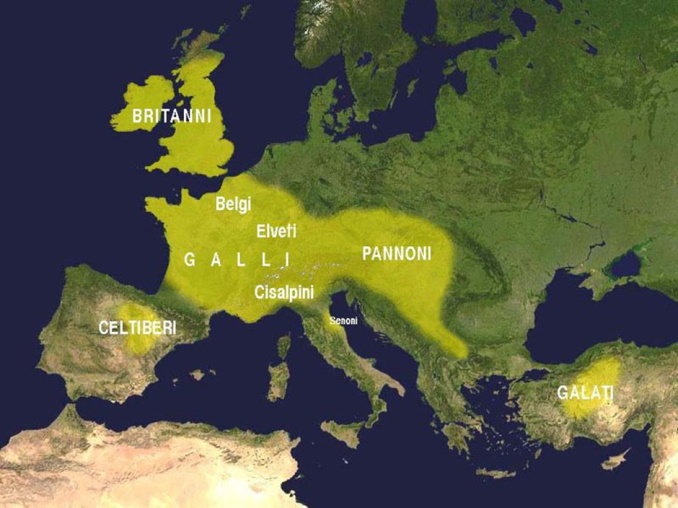Galatasaray Celtic 0-0 (5-4), 12 January 2014 - An ordinary game with a great ignored story
The Celtic football club from the city of Glasgow (A in the map) in Scotland travelled to Antalya (C), southwestern Turkey, in January 2014 for a football tournament. In the final of this tournament they met Galatasaray from the city of Istanbul (B), based in the European part of the city, also in Turkey. The city of Istanbul is divided into two parts by the Bosphorus Strait which joins the Black Sea to the Mediterranean Sea.
Glasgow is 3600 km away from Istanbul and yet these teams are sisters, probably without there being an awareness of this by the managers, the players and even less the fans. I wasn't aware of it either in 2014.

Galatasaray in Turkish means “Galatans palace” referring to a palace located in the Galatian district of Istanbul. This neighborhood, in addition to its name, has many other references to the Galatians, such as the Galatian tower, the Galatian university and so on. This is because a Galatian prince and his family, as well as also probably several other Galatian families, had moved from central Turkey, the location of current Ankara the Turkish capital in the central Anatolia province, to Istanbul around the year 1000 AD. This was during the Byzantine era when Istanbul was still called Constantinople and was the capital of the Byzantine state.
A people of Celtic ethnic origin from central Europe from between Franconia, currently the northern part of the German region Bavaria and the northern part of Bohemia, the current Czech Republic, had moved to the central Balkans around 400 BC. These Celts were called Volci and they were probably one of the nine entities created with the Celtic expansion at that time. They had developed a great ability to work with natural resources such as iron. A branch of the Volci called Tectosagi and two other Celtic groups Telistobogi and Trocmi, moved to Asia Minor, currently Turkey, giving rise to the Galatian people and brought with them the Celtic traditions that have now disappeared under the pressure of the powers that have succeeded in that area.

The word Galatian is the translation of Gaul into Greek. Gauls, Celts and Galatians are the same ethnic group translated into their respective languages, Latin, Celtic and Greek. The Galatians were also called foreigners by the Greeks. The Galatians are also mentioned in the bible, new testament, letters of St. Paul to the Galatians.
With the knowledge of these historical evolutions this match between Celtic and Galatasaray could have had a much more important meaning than a simple preparation match to face the second half of the current season.
According to the book Sfakia by George K. Dalidakis and Peter Trudgill, in 1183, one of the Galatian princes of Istanbul then Constantinople, became governor of a province of Crete, currently a Greek island. The prince was called Marino Skordilis, the Skordilis family was also known as Pegolino. From the name Marinos, of this prince, the surname Marinakis was created, according to Antonis Mavridakis, a local Cretan historian in the Byzantine era. One such Marinakis is Evangelos, currently president of the Nottingham Forest football club. Perhaps Evangelos felt the call of his Celtic ancestors.
Another team that flies Celta ethnicity is Celta Vigo, La liga, Spain.
Who knows maybe one day they will be able to play a Celtic championship or a Celtic cup!
References
https://en.wikipedia.org/wiki/Antalya
https://www.youtube.com/watch?v=rL8poVOW8LA
https://it.wikipedia.org/wiki/Volci_(popolo)
https://it.wikipedia.org/wiki/Ankara
- Pan-Celtic
- English





